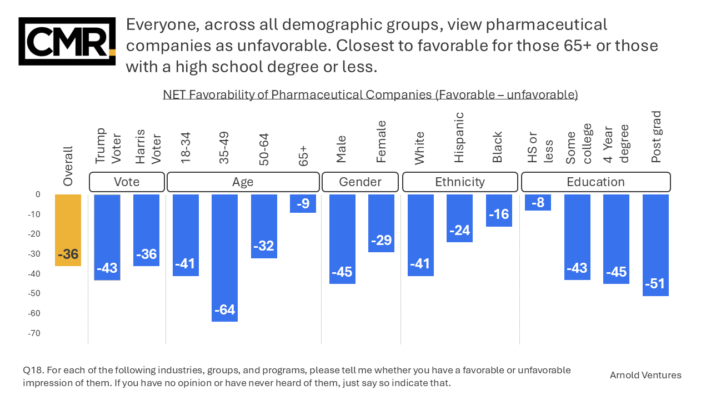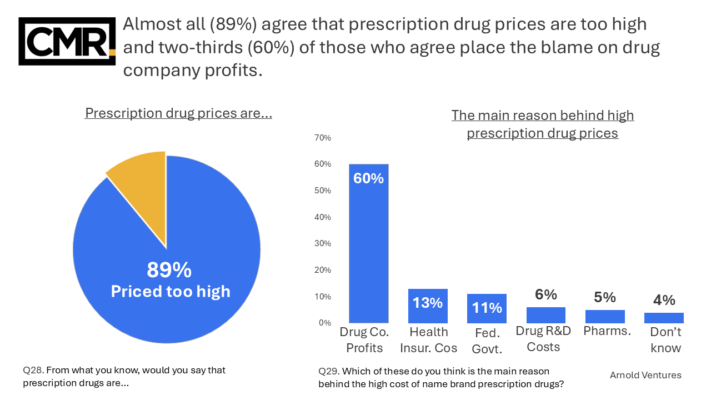Almost all (89%) agree prescription drugs are priced too high
No love for health insurance or pharmaceutical companies

Within the health care industry, public opinion tends to be positive toward doctors, Medicare, Medicaid, and hospitals, all of which are generally viewed as favorable. In contrast, health insurance companies and pharmaceutical companies are seen in a largely negative light, with many Americans expressing unfavorable views of these sectors.
We all agree that pharmaceutical companies are the worst

America’s collective unfavorable view of pharmaceutical companies may truly be one of the only things everyone can all agree on. Regardless of who someone voted for, how old they are, their gender, their ethnicity, or their education, everyone views pharmaceutical companies unfavorably, with some slight differences. The groups who come closest to a favorable view are those who are 65 years or older (-9), black Americans -16), and those with a high school education or less (-8). Although even these groups have an overall unfavorable view.
Drug company profits are to blame for high drug prices

A strong majority (89%) of Americans believe prescription drug prices are too high, a sentiment that is shared across political affiliations and demographic groups. When asked why prices are so high, three-in-five (60%) point to pharmaceutical company profits as the primary reason, suggesting widespread skepticism about the industry’s pricing practices.
Read more
National & Targeted CD Registered Voter Surveys
Research publisher
Arnold Ventures is a philanthropy that supports research to understand the root causes of America’s most persistent and pressing problems, as well as evidence-based solutions to address them. By focusing on systemic change, AV is working to improve the lives of American families, strengthen their communities, and promote their economic opportunity.
Methodology
Fabrizio Ward interviewed 1,000 registered voters nationwide and 1,000 registered voters in Targeted Congressional Districts,
from March 19-24, 2025. Data was weighted by region/district, age, gender, recalled 2024 vote, education, and race/ethnicity. The interviews were conducted via cell phones (35%), landlines (25%), and SMS-to-Web (40%) to voters sampled from the voter file.
